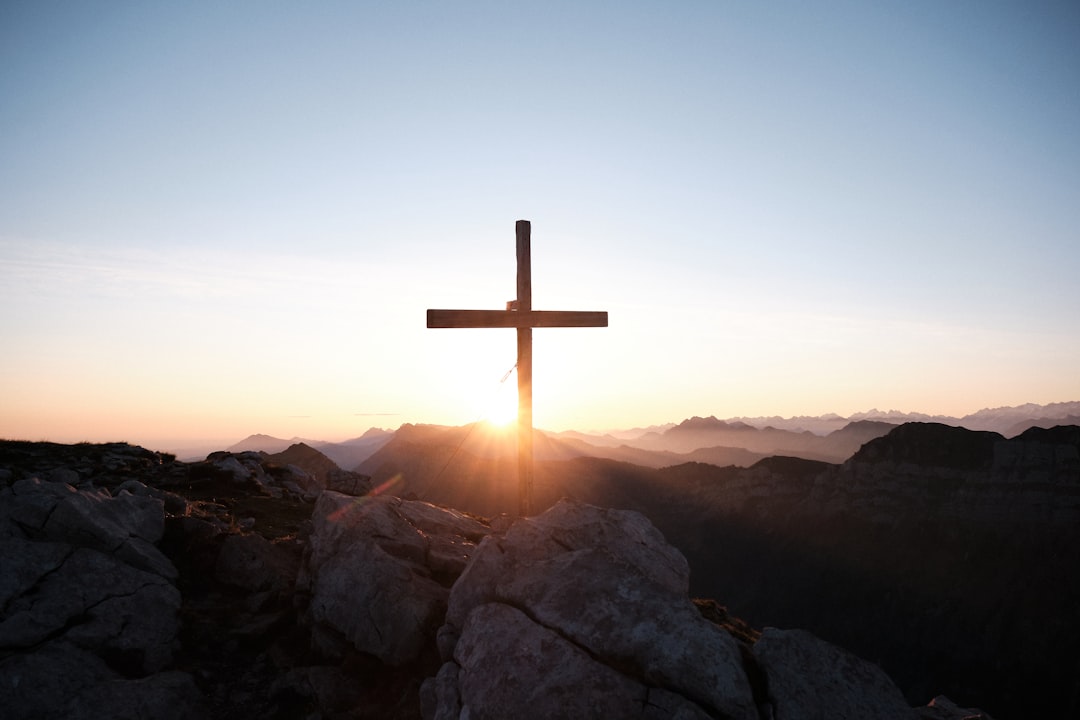This year, I’ve been trying to make contemplation and reflection regular practices in my life.
So, as we enter in to the second half of Holy Week, excitedly anticipating the celebration of Easter, I wanted to use this opportunity to reflect on a prayer from The Valley of Vision.
If you’ve read Warranted for a while, you’ve heard me talk about my love for this collection of Puritan prayers and devotions. Each entry overflows with solid theology that prompts honest self reflection and spurs true worship.
Yes, the language and writing style can be challenging to read, but that’s part of what makes the experience so rich for me—it forces me to slow down and really consider the meaning and intention of each word and phrase.
Meditate on these words as you prepare your heart to observe Good Friday and Resurrection Sunday this year, and consider returning to them even after the Easter season has passed to remind yourself of the goodness of God in the suffering of Jesus.
Resurrection
O God of my Exodus,
Great was the joy of Israel’s sons, when Egypt died upon the shore, Far greater the joy when the Redeemer’s foe lay crushed in the dust.
Jesus strides forth as the victor, conqueror of death, hell, and all opposing might;
He bursts the bands of death,
tramples the powers of darkness down,
and lives for ever.He, my gracious surety, apprehended for payment of my debt, comes forth from the prison house of the grave free, and triumphant over sin, Satan, and death.
Show me herein the proof that his vicarious offering is accepted, that the claims of justice are satisfied, that the devil’s sceptre is shivered, that his wrongful throne is levelled.
Give me the assurance that in Christ I died,
in him I rose,
in his life I live, in his victory I triumph,
in his ascension I shall be glorified. Adorable Redeemer, thou who wast lifted up upon a cross art ascended to highest heaven.
Thou, who as Man of sorrows wast crowned with thorns, art now as Lord of life wreathed with glory.
Once, no shame more deep than thine, no agony more bitter, no death more cruel.
Now, no exaltation more high, no life more glorious, no advocate more effective.
Thou art in the triumph car leading captive thine enemies behind thee.
What more could be done than thou hast done! Thy death is my life, thy resurrection my peace, thy ascension my hope, thy prayers my comfort.
And now, three quick things I want you to notice as you contemplate these words:
1. The story of Easter starts in the Torah.
The writer of this prayer deliberately addresses God as “God of my Exodus,” using the first stanza to compare Israel’s miraculous rescue from Egypt via God’s parting the Red Sea to Christ’s trampling death in the wake of his resurrection. I also see an allusion to Genesis 3:14-15 here: Compare “the Redeemer’s foe lay crushed in the dust” to “on your belly you will go and dust you shall eat…he shall bruise your head, and you shall bruise his heel.”
Jesus is the offspring that was promised in Genesis 3, the seed of the woman who would ultimately defeat the powers of evil represented by the snake. Redemption was always God’s plan, and the story of Israel told in the Old Testament is essential.
2. The glory of resurrection cannot be contained.
I love the imagery of the second and third stanzas here: “Jesus strides forth as the victor…he bursts the bands of death, tramples the powers of darkness down…”
What a powerful image! When I read these words, I picture Jesus walking out of the tomb that should have been the guarantee of his defeat; instead, the stone that was rolled away was a harbinger of victory, the “firstfruits of all creation” declaring a decisive defeat over the power of death.
3. The hope of resurrection is shared.
Jesus’ resurrection isn’t a one and done event, but a hope that his followers get to share in, too: “For as by a man came death, by a man has come also the resurrection of the dead. For as in Adam all die, so also in Christ shall all be made alive. But each in his own order: Christ the firstfruits, then at his coming those who belong to Christ.” (1 Corinthians 15:21-23)
As the author says: “What more could be done than thou hast done! Thy death is my life, thy resurrection my peace, thy ascension my hope, thy prayers my comfort.” How could we dream of a greater hope than this?
I hope you are able to spend some time in prayer, reflection, contemplation, and worship this Easter weekend. Praise the Lord for the gift of the cross and all it represents! May we never take it for granted.




